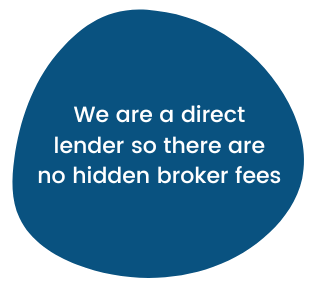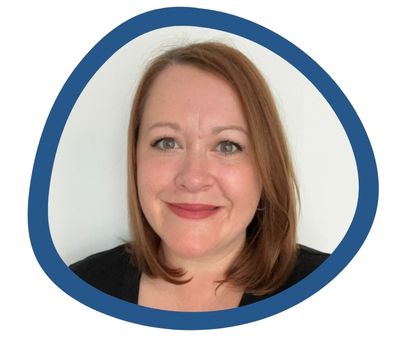
Can I get a HMO mortgage as a first time landlord?
Yes, you can get a HMO mortgage as a first time landlord. Many lenders are hesitant at giving first time landlords a HMO mortgage, as it can be considered a risk. Especially since HMO properties are seen as more difficult to manage than a standard buy to let property.

What is considered an experienced landlord?
An experienced landlord is identified as someone who owns at least one investment property for at least one year. However, this can differ from lender to lender.
Why are experienced landlords preferred?
The circumstances of this type of property tends to be more complex than just looking at standard buy to let properties. This can be for reasons such as:
- Tenants moving out of the property will create more frequent void periods, if they are on single tenancy agreements otherwise known as assured short hold tenancy agreement (AST’s).
- If they are on separate agreements collecting rent from each tenant will be separate payments rather than one
- It can be more time consuming. Frequent checks of the property will need to be made – more people living in the property sharing communal areas means you don’t know who is responsible for damage. They tend to require more maintenance and repairs than traditional buy to let properties due to wear and tear.
- There are additional legalrequirements associated with HMO properties. Landlords will need to ensure that the property meets all legal requirements. For example there has to be adequate fire protection with appropriate detection and alarm systems in place.
- Licensing of the property also needs to be considered. In some parts of the UK, landlords are required to have a license a HMO property. Failure to do so can result in fines of legal action
Due to the high involvement that comes with HMO property, lenders prefer individuals who have more experience than those who do not.
What are the pros of investing in a HMO property?
Whilst HMO properties can be more time consuming and harder to organise. There are also pros of investing in these types of properties.
Higher rental yield
HMOs tend to have multiple tenants, who each pay for their own rooms. As there are more tenants within the property, the potential for higher rental yield is greater. This means that the returns made on an HMO property can be higher than returns on a standard buy to let property.
Rental demand
HMOs are an appealing choice for renters who are looking for cost-effective accommodation, especially in more expensive locations where rental prices can be higher e.g. London. Therefore, the rental demand for HMO properties can be high in some areas, which means it could be a good investment for landlords.
Diversifying your portfolio
HMO properties provide landlords to broaden their property portfolio. HMOs can be a good investment for those who are looking to distribute risk amongst tenants, in particular the tenants who miss or give late payments.
What are the legal regulations in place as a HMO landlord?
If you are looking at becoming a HMO landlord, there are some important regulations that must be followed. Health and safety is incredibly important within these types of property. Keeping the property free of mould and maintaining living conditions is crucial.
When it comes to fire safety, equipment should be readily available. Also, the structure of the property such as the doors and windows within the property must be designed in order to prevent / minimise the risk of a fire i.e. fire safety doors. Providing equipment such as smoke alarms and carbon monoxide detectors are all legal obligations in HMO properties. If you fail to meet these regulations then you may be at risk of heavy fines from local authorities or could potentially have your HMO license seized.
What is there to consider before looking at investing in your first HMO property?
Before looking at taking out a HMO mortgage as a first time landlord, there are a couple of things to consider:
The property
As previously mentioned, it is important for the property to be in a good condition before letting it out to tenants. Facilities such as waste disposal and an internal heating system are important to ensure living conditions are sustainable.
Rental void periods
Before looking at HMO property, you must think about the potential periods where tenants will not be living in the property (void periods). You must ensure that you are able to cover the costs during this period.
Types of tenants
When looking at HMO property as a first time landlord, the location of your property may impact the type of tenant that you attract. For example, if your property is a near a university it is likely you will attract students. It is important to make sure your tenants get along together to avoid disputes and potential rental void periods.
It is worth noting that some lenders may not allow specific tenant types, so it is important to research this before applying for a HMO as a first time landlord.
Property repairs
You must ensure that your property has frequent maintenance checks. If there is something in your property that needs to be repaired, it is your responsibility to get this arranged as soon as you are able to do so. You must make sure that you have additional funds to help cover these repairs so that living conditions remain manageable.
HMO license
You make need to obtain a HMO license depending on where the property is in the UK and how many people occupy the property. If the property is occupied by 5 or more people a HMO license must be in place. You can find out what type of license you need by contacting your local council or visiting the government website.

How Mercantile Trust could help
At Mercantile Trust, we could get you a HMO mortgage regardless of your experience as a landlord. We are one of the few lenders who offer HMO mortgages to first time landlords with up to 65% LTV.
Call our free number on 0800 032 3737 to speak with one of our experienced advisors. We could get you a lending decision in one phone call.
Frequently asked questions
A buy to let mortgage is a finance agreement that allows you to purchase a property in order to rent it to a third party.
A regular residential mortgage does not let you rent the property out, unless you gain the permission of your mortgage lender. Whilst residential lenders may give you permission if you ask for it, there will often be an additional charge to do so.
Buy to let mortgage affordability calculations are assessed on the potential rental income of the property i.e. how much rent can be charged for the house or flat / apartment being purchased. This means that your personal income is less of a factor.
The only exception is if you are a first time buyer, where personal income is assessed, in order to protect those who are new to property investment from over-stretching themselves financially.
Lenders will want to see that applicants do have some form of personal income, but many don’t have a minimum income requirement, so if you have retired and are on pension income, or you are self-employed and have a low income, or your personal income is low for any other reason, you may still be eligible for a buy to let loan.
When you speak to a buy to let mortgage lender direct, the process for getting a buy to let mortgage generally includes similar steps.
First of all, you would speak to a mortgage advisor for the lender, who will discuss how much you want to borrow, how much deposit you have to put down, and the rent you are receiving for the property (if you are remortgaging) or expect to receive (if you are purchasing).
The advisor will also ask you about the property in more detail, your experience in property (e.g. do you own your own home, do you own other properties), your financial situation and credit history.
This information helps a lender advisor assess whether you are a match with their criteria. Lenders build a picture of the type of property and applicant they are willing to lend to, this is their "criteria".
If your application matches the lender criteria, the property you are investing in will be valued and if the valuation matches the borrowing calculation for a deal the lender can offer you, they will grant you a "decision in principle" (DIP) or "agreement in principle" (AIP).
A DIP or an AIP simply means that if you proceed with an application and all other details you have provided meet the lenders approval, you will be offered a mortgage.
It is very important that all the information you provide is accurate, because if it isn't, the lender may be unable to accept your application.
There will be documents a lender requires from you to support your application, proof of affordability (e.g. tenancy agreement and proof of rent into a bank account), proof of your identification (if electronic checks fail) and signed lender documentation.
Once all the documents are back with the lender, the case will be processed and funds paid to you.
The amount of deposit you have available can have a significant impact on your mortgage.
The larger your buy to let mortgage deposit, the lower amount of credit you will need to borrow. If you borrow less money, your monthly payments and interest rates could be lower and the total amount you repay could be reduced.
The reason the cost or a mortgage is typically lower with a larger deposit, is because the lender takes on less of the risk than if they were lending to someone who wanted to borrow at a higher loan to value with a lower deposit.
The buy to let mortgage rate you are offered depends on a number of factors unique to your case. This includes your financial situation, the rental income of the property you’re looking to purchase, how much you’re expecting to borrow, your credit profile and whether you’re borrowing for a first or second charge mortgage.
Because of the amount of factors considered, buy to let mortgage rates can vary. Whilst you can input details about the borrowing you need into various online buy to let mortgage rate comparison tables, they usually cannot overlay the lender criteria, so you may be looking at a product you are not eligible for.
Having a discussion with a lender directly, will help you find out if you qualify for their products, and which product specifically from amongst their range.
Having a discussion with a broker, who has access to an extensive breadth of lenders, will help you establish the most competitive deal you can secure from across the buy to let marketplace.
If you want to raise some extra cash and release some equity from an existing mortgaged rental property, a second charge buy to let mortgage could be the ideal solution.
Whether you want to raise the money for a deposit for your next property, to renovate an existing property or for any other reason at all, a second charge buy to let mortgage is a great way to get the capital you need, fast.
A second charge mortgage sits alongside your existing buy to let mortgage product without affecting it. It is an alternative to remortgaging.
Always be prepared for times when there’s no rent coming in
In the life of any rental property, there will almost certainly be periods when there is no tenant and no rent is being received. It is essential to plan ahead for these times (known as “voids”) as you will still be required to make your mortgage repayments in order to retain the property.
During the times you are receiving rent, transfer some of it to a savings account and keep this account topped up whenever possible. This money can be used to make mortgage payments during voids, or to cover any unexpected repair bills such as blocked drains or a broken boiler.
Never rely on the sale of the property to repay its mortgage
Assuming that you will be able to sell a property in order to repay the mortgage can be a risky trap to fall into. Even in a buoyant economy there is always the danger of house prices dropping. If this was to happen, you may not be able to sell your property for as much as you anticipated, and you would still have to cover the difference on the outstanding mortgage.
